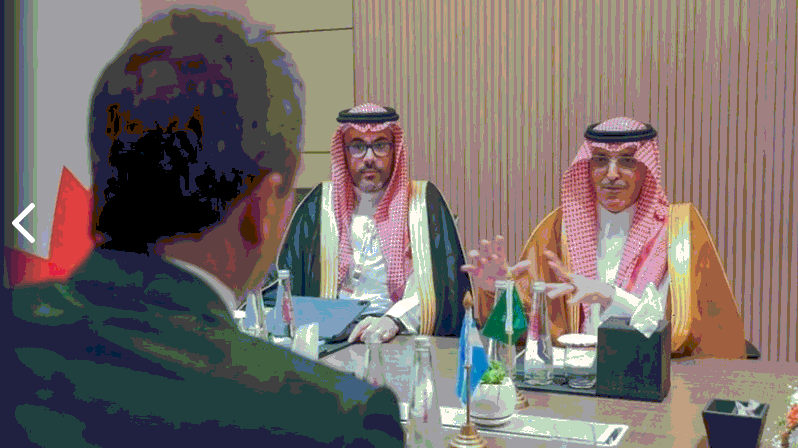Economy Minister Sergio Massa signed the agreement with the CEO of the fund, Abdulrahman Al-Marshad. The two officials also discussed future investments that could center on water infrastructure, as that is one of the interests of the Saudi fund. This deal follows similar deals that the Argentine government has been negotiating with various Arab countries over the past few months. Some government sources are predicting that there could be a further $700 million investment from the Saudi fund in the near future.
The two country’s governments have been strengthening their economic ties for some time. Minister Massa and Mohammed al-Jadaan, Saudi Arabia’s Minister of Finance and one of the most important officials in the Kingdom, had a brief conversation during the spring meeting of the International Monetary Fund and the World Bank in Washington D.C earlier in April. The IMF meeting was a high-level event with officials from around the world discussing the state of the world economy and proposing ways to improve it.
The Argentine government is keen to increase the amount of foreign investment in the country, and as such they have been engaged in discussions with several Arab countries over the past few months. The first project that was earmarked for investment was a water purification system in Santa Fe and Cordoba. The Saudi fund has assets worth around $170 billion and their investment in this project is intended to improve the sanitation conditions of these two Argentinian cities. Another investment potentially under discussion is a second water pipeline in Argentina.
The country’s economy is starting to stabilize, but much will depend on the amount of foreign investment that can be attracted. The country’s government is keen to incentivize foreign investors by offering tax breaks and improving the regulatory environment. The current partnership with the Saudi fund is a positive development for the Argentinian government, as it is the largest investment the country has seen in recent times. The government is hopeful that further investments of a similar size will follow in the future.
The context for Saudi Arabia’s newfound investment activity is the country’s realization that it needs to diversify its economy beyond oil revenues. Saudi Arabia is, historically, one of the largest oil producers in the world, but the falling prices of oil have led the country to look for alternative investment options. The Saudi Foreign Investment Fund is one such option, offering a way for the country to make investments in foreign economies. For Argentina, this is a welcome opportunity to attract foreign investment from a wealthy and stable source.
Officials from the two countries will now begin to work out the details of the memorandum of understanding, which are expected to include looking at the tax implications of the investment and the regulatory environment that the Saudi Foreign Investment Fund would need to operate within. The project is expected to take several years to complete, but it is hoped that once the work is finished, the economies of Santa Fe and Cordoba will be significantly improved.
As for the future, there are several other investment opportunities that Argentina is exploring. In addition to water infrastructure, officials are also looking at investment opportunities in renewable energy, as well as agriculture and technology. The government is keen to build relationships with as many foreign governments as possible and is hoping that further investment opportunities will arise over the coming months.
Finally, the negotiations between Argentina and Saudi Arabia also included discussions around schemes for financing the export of products from Saudi Arabia to Argentina. The exact amounts and details of these schemes are still being worked out, but both countries are keen to expand their trade relationship. This could potentially lead to a further boost for the Argentinian economy, as foreign investment and increased trade could help to lift the country out of its current economic doldrums.

